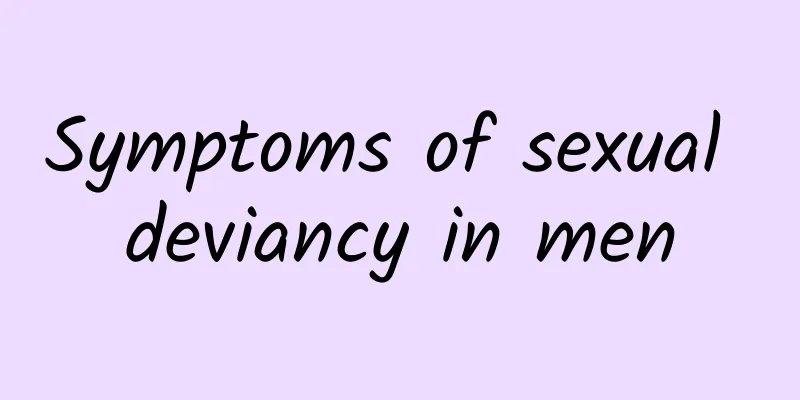What causes ovarian cysts?

|
Ovarian cysts are a relatively common gynecological disease. Among infertile women, there are many causes of ovarian cysts, which often affect the development and maturation of eggs. There are many reasons for the formation of ovarian cysts, which are related to genetics. Studies have found that about 1/4 of women have a family history of the disease. In addition, if there is an endocrine disorder, it will affect women's ovulation, affect ovarian function, and lead to cyst symptoms. Causes and symptoms of ovarian cysts reason 1. Genetic factors. According to data, 20% to 25% of ovarian tumor patients have a family history, which is genetically inherited. This is a common cause of ovarian cysts. 2. Endocrine disorders. The ovaries in the female reproductive organs are important organs that produce eggs and ovulate, secrete hormones, and balance the endocrine system. Ovarian cysts often occur during the reproductive age when the endocrine system is active. Therefore, the formation of ovarian cysts is related to endocrine disorders. 3. Gynecological inflammation. Inflammation of the fallopian tubes often affects the ovaries, forming inflammatory effusions and pus, which in turn lead to ovarian cysts. Endometriosis can also affect the ovaries, forming cysts filled with chocolate-like, sticky fluid. symptom 1. Abdominal pain. If the tumor has no complications, there is very little pain. Therefore, if patients with ovarian tumors feel abdominal pain, especially if it occurs suddenly, it is mostly due to torsion of the tumor pedicle, or occasionally due to cyst rupture, bleeding or infection. In addition, malignant cysts often cause abdominal pain and leg pain, and the pain often causes patients to seek emergency treatment. 2. Compression symptoms. Huge ovarian tumors can cause dyspnea and palpitations due to compression of the diaphragm. Ovarian tumors combined with large amounts of ascites can also cause these symptoms; but some ovarian tumor patients' dyspnea is caused by unilateral or bilateral pleural effusion. 3. Menstrual disorders. Menstrual disorders are usually caused by ovarian or even bilateral ovarian cysts. Since it does not destroy all normal ovarian tissue, it usually does not cause menstrual disorders. Will ovarian cysts affect pregnancy? 1. When some ovarian cysts are acutely or chronically twisted or ruptured, it affects the blood supply to the ovaries and causes necrosis, which in turn leads to ovarian dysfunction and anovulation. If it is bilateral, the impact is even greater. 2. When ovarian cysts grow too fast and too large, they can affect the blood supply and ovulation of the ovaries; 3. When some ovarian cysts with endocrine function, such as ovarian thyroid tumor, ovarian granulosa, theca cell tumor, testicular blastoma, etc., produce certain corresponding hormones due to the different tumor tissue components they contain, thus interfering with the normal secretion of ovarian hormones and ovulation, resulting in amenorrhea, uterine bleeding, hirsutism and other symptoms; 4. When certain malignant or huge ovarian tumors destroy most of the ovarian tissue, ovarian dysfunction, anovulation, adhesion to surrounding tissues, and blockage of the fallopian tubes may occur, all of which can cause infertility. |
Recommend
How to divide Panax notoginseng into several parts
Which Panax notoginseng has the best number of he...
Does varicocele hurt?
Varicocele is different from varicose veins. Vari...
Scraping your fingers to treat hemorrhoids
Hemorrhoids are a gender-neutral disease and are ...
Yellowing of the whites of the eyes
Yellowing of the sclera of the eyes is a common e...
What are the symptoms of big three positive
Many people may not have heard of the disease &qu...
Tetanus phobia
When there is a trauma to the body, it can easily...
What is genital herpes? What are the symptoms? How to classify?
Genital herpes is caused by infection with a herp...
What are the six major categories of tea in my country?
my country has a history of thousands of years of...
Will strawberry nose heal on its own?
Strawberry nose mainly refers to some hardened oi...
High temperature diarrhea
We know that diarrhea is mostly caused by eating ...
How to soak passion fruit peel in water
Passion fruit is a very healthy fruit, and the mo...
How to treat dizziness caused by cervical spondylosis?
Cervical spondylosis is usually caused by poor po...
What kind of pollen is good for removing freckles?
Did you know that pollen actually has certain bea...
What are the symptoms of baby having wind?
Children are often prone to various disease probl...
How to treat chronic enteritis in children
Chronic enteritis does not only appear in adults,...









